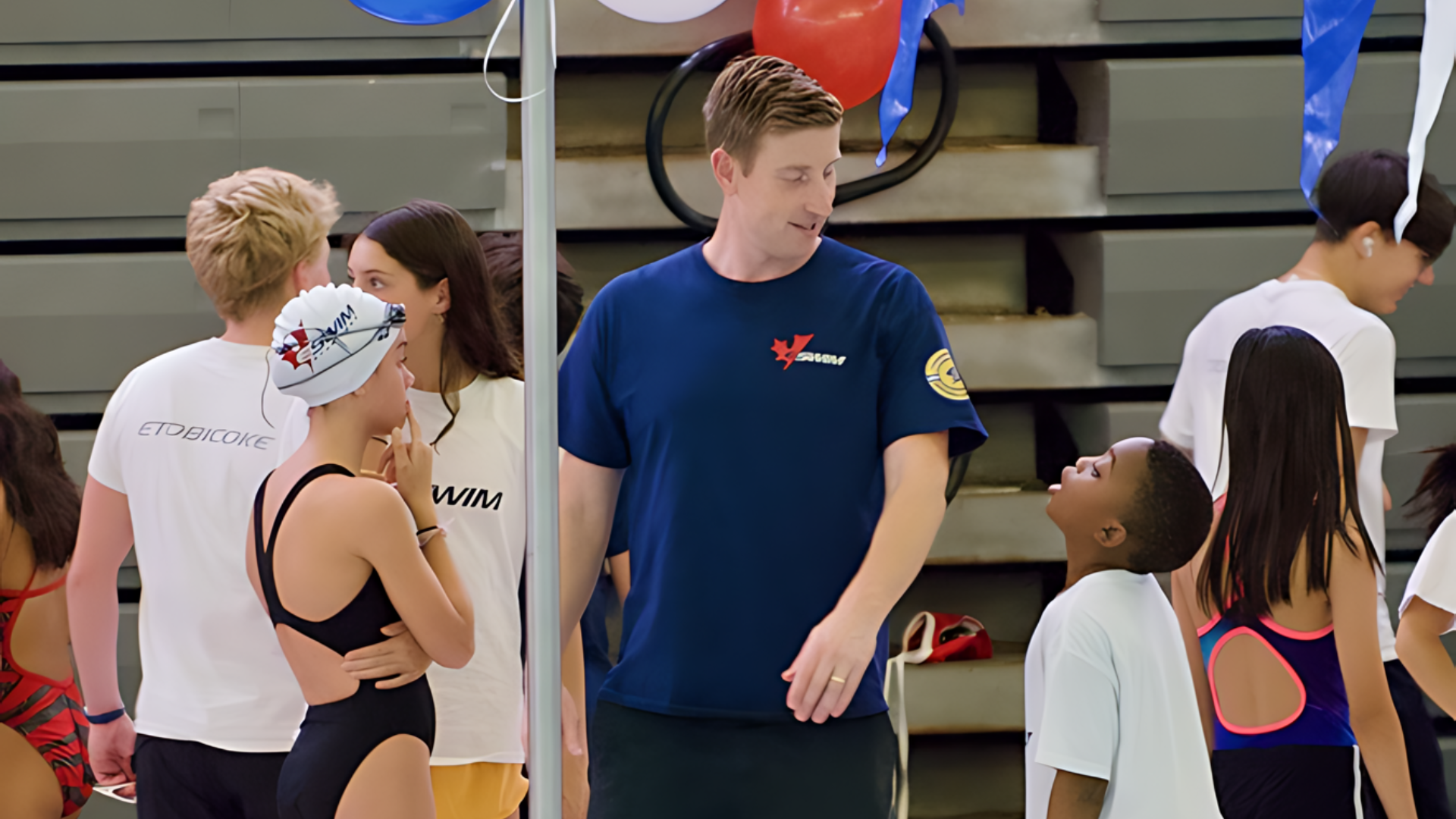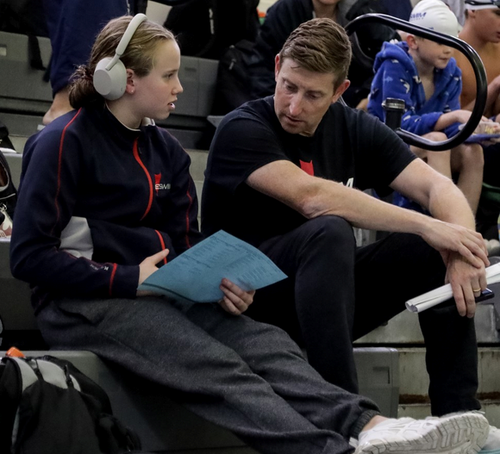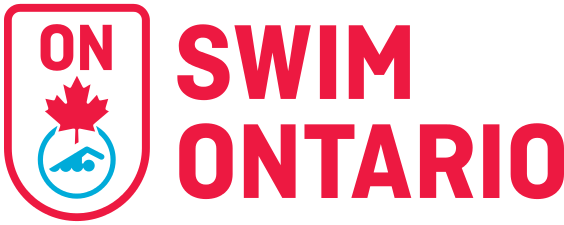Features
April 16, 2024
Jumping into the deep end and going for it

Marc Spackman
Jumping into the deep end and going for it.
You’ll hear that expression quite a bit when having an informative conversation with Marc Spackman, the Director of Swimming and Head Coach of the Etobicoke Swim Club (ESWIM).
A former outstanding Olympic swimmer from Great Britain, the accolades continued for Spackman in the role of coaching. That’s where he continues to illustrate and personify the true meaning of that leadership function.
For him, promoting motivation comes with understanding the strengths and weaknesses of his swimmers. It’s not simply a case of directing athletes into the water and telling them to go for the medal podium.
Spackman is an individual, with more than impressive coaching credentials and a remarkable 10-year career as an athlete who has competed across the globe. After his competitive days ended, Spackman pursued coaching, which included professionally as well as in the International Swimming League (ISL).
A great guy for a chat, you might even catch the odd few words of British slang if you push the exchange of dialogue.
Alright, mate. So, howdy to you, coach – and you will do jolly well in Canada.
When it gets right down to finding head coaches in any sport, there is no shortage. However, the key is getting the right one. That goes beyond the notable resumes and accolades to finding a person with strong communication skills, a record of success stories and building on the athlete’s skills that last a lifetime.
It’s often a tough task that requires a vigorous and stalwart individual.
Launched in 1954, the Etobicoke Swim Club, which became known by the acronym ESWIM, has a rich history of success as one of the oldest aquatic organizations in the country. In 2023, the organization went looking for a new head coach.
With a strong reputation, the challenge for the ESWIM hierarchy was to secure a coach whose goals matched those of the club: “support young people with the drive, determination, talent and desire, to realize their maximum potential in competitive swimming”.
Constantly growing, now with more than 350 athletes, the program that has reaped distinction from esteemed coaches of past. As one of the country’s premier swim clubs, it now has its latest aquatic guru. He follows others like Deryk Snelling, Kevin Thorburn and Paul Bergen, just to name a few, who have done wonders with swimmers.

So, Spackman comes from across the pond. That’s the notable phrase used to imply someone from the other side of the North Atlantic Ocean.
Now a year into the job, Spackman continues to adjust and thrive.
“Coming to Etobicoke was new, it’s great and (I) like jumping into the deep end and going for it,” he said, while interviewed for the SWIM ONTARIO “Swimming Life Experience” series highlighting coaches, athletes, officials and volunteers. “I love to challenge myself and learn new things.”
Spackman knows all about his predecessors and a swim club that has pages of special achievements.
They include some 34 swimmers who have placed on Olympic teams – and some winning medals. Others have been successful at the World championships, Commonwealth and Pan Am Games as well as hundreds who have won Provincial age group and Open championships. Add on more than 175 swimmers breaking National and Provincial records.
While Spackman may not be the first head coach from the UK embedded with the Canadian swim club, finding the challenge and opportunity that he wanted was important. Spackman intends to build on the ESWIM fame. Snelling was also from England, a former performance director, and Spackman learned from him.
“Top swimmers require discipline, confidence, and belief, while being provided opportunities to succeed,” said the 45-year-old Spackman who, along with his wife and four children, have made Oakville their home. “I strive to help athletes, and coaches, look beyond the barriers they perceive as their limits and achieve outstanding results.”
Asked what he thought makes up a good coach, Spackman didn’t hesitate.
“Coaching is about inspiring and enhancing individual strengths while creating opportunities for athletes to develop confidence and belief in order to perform in the right place at exactly the right time,” he added.
In the United Kingdom, Spackman was head coach of the Royal School Wolverhampton, and has coached British national team swimmers that included Paralympic gold medalist Robert Welbourn, Olympians Sophie Allen, Alice Dearing, and Elizabeth Simmonds. Most recently, that list included Matthew Richards, an Olympic gold medallist and World champion.
Spackman also was a member of the ISL’s New York Breakers coaching staff in 2020 and 2021.
Initiation to swimming came early for Spackman. He was four years old when he literally, and figuratively, took that first plunge.
“It was at a hotel pool (in London, England) that I jumped into the deep end – and my father came after to fish me out,” he remembered. “Not long after came the swim lessons. I liked them and was fortunate to learn from a former British Olympic head coach. Leadership from the top.”
Spackman would see the success of older teammates in the Olympics, caught a glimpse of others on television and in pictures. It didn’t take long for him to catch the swimming bug.
At age 14, Spackman took competitive swimming seriously and focussed on the breaststroke. Two years later, he made the European Junior swim team, which was his first major accomplishment.
Among his many successes, Spackman was on the 400-metres freestyle relay team that won a gold medal and set a new European Junior Record. He was also a member of the 4x200-metres relay team that won a bronze medal at the World Long Course championships.
Many highlights would follow for Spackman - including competing at the World championships in 1999 (Hong Kong) and 2000 in Athens (Greece). At the 2000 Olympic Games in Australia (Sydney), his relay team set a British record, but narrowly missed out on claiming an Olympic medal.
He ended his competitive swim career in 2003 and earned a university honours degree in Art and Design. During his post-secondary studies, he launched his coaching career at age 20.
Now 25 years as a coach, Spackman has a wealth of experience.
“After you’re finished competitive swimming, no one gives you a golden ticket (for employment),” he said. “I had lots of jobs from loading trucks to working at a bank – coaching was something I wanted to pursue.”
Shy, reserved and strengthening his communication skills, Spackman persevered.
“I had a huge amount of knowledge as an athlete, and the privilege of working with some of the world’s best coaches, but the challenge was to put it to use as a young coach and find my own unique formula,” he recalled.
“It was daunting and exciting in equal measure, and the experience helped me to develop quickly. I’m passionate about developing skills and technique and skills in swimmers. Technique and physical intelligence development give the foundation for success; confidence, belief and the right mindset can take you all the way”.
Coaches, regardless of the sport and level, face challenges at all levels.
“The number one priority are the athletes and to make sure they have what they need for continued success at all levels of competitive swimming,” said Spackman, who is focussed on discipline, inspiration, and individual super strengths. “The biggest opportunity for me is to build rapport and develop confidence and belief in athletes.”
David Grossman is a veteran multi award-winning Journalist and Broadcaster with some of Canada’s major media, including the Toronto Star and SPORTSNET 590 THE FAN, and a Public Relations professional for 50+ years in Canadian sports and Government relations.
